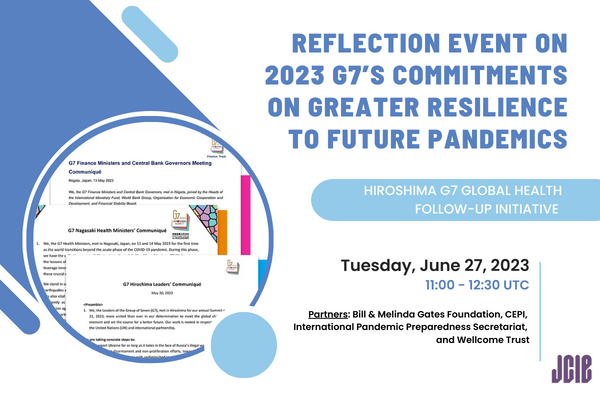The Japan Center for International Exchange (JCIE) is launching a global health follow up initiative to the 2023 G7 in Hiroshima, titled “Global Health Multistakeholder Dialogue: From Hiroshima to Puglia,” in partnership with the Bill & Melinda Gates Foundation (BMGF), the Coalition for Epidemic Preparedness Innovations (CEPI), the International Pandemic Preparedness Secretariat (IPPS), and Wellcome Trust to review the progress of the G7’s past commitments related to pandemic prevention, preparedness, and response (PPR)/resilient health systems, and identify the remaining challenges that need to be addressed in the G7 2024. This initiative will be carried out based on the network with various stakeholders built up through the Hiroshima G7 Global Health Task Force (established under JCIE’s Executive Committee on Global Health and Human Security), which presented its recommendations, “Promoting Global Solidarity to Advance Health System Resilience: Recommendations for the G7 Meetings in Japan,” to the Government of Japan.
The goals of this kick-off event were to:
- invite diverse actors in global health to offer their reflections on the 2023 G7’s agreement on PPR/resilient health systems
- discuss possible actions to implement the G7 commitments (including those made by past G7s)
You can view a recording of the event below:
Opening
YASUHISA SHIOZAKI, Chair, Hiroshima G7 Global Health Follow-up Advisory Committee
Overview of the 2023 G7’s commitments on greater resilience to future pandemics
SEIJI KIHARA, Deputy Chief Cabinet Secretary, Japan (video)
From G7 to G20
LAV AGARWAL, Additional Secretary, Ministry of Health and Family Welfare, Government of India
Panel discussion: To realize the G7’s commitments
OSAMU KUNII, CEO and Executive Director, GHIT Fund [Moderator]
Overview of the progress of PPR discussions:
MICHAEL RYAN, Executive Director, WHO Health Emergencies Programme
Other Panelists (in alphabetical order):
VALARIE NKAMGANG BEMO, Deputy Director, Emergency Response, Health, Bill & Melinda Gates Foundation
YASUHIRO FUJIWARA, CEO, Pharmaceutical and Medical Devices Agency (PMDA)
RICHARD HATCHETT, CEO, CEPI
SANIA NISHTAR, Member of the Senate of Pakistan; member of the UHC Movement Political Advisory Panel, UHC2030
AHMED OGWELL OUMA, Deputy Director-General, Africa CDC
SCOTT PENDERGAST, Director, Health Emergencies Strategy, Programmes and Partnerships, World Health Organization
FIFA A. RAHMAN, Special Advisor, Health Poverty Action
RINO RAPUOLI, Scientific Director, Biotecnopolo di Siena Foundation
PETER SANDS, Executive Director, Global Fund to Fight AIDS, Tuberculosis and Malaria
MONIQUE VLEDDER, Practice Manager for the Global Health, Nutrition and Population Unit, World Bank; Former Head of Secretariat, Global Financing Facility for Women Children and Adolescents (GFF)
Panelists are subject to change based on speaker agendas.
Some of the key points raised during the discussion included the following:
- National leadership and ownership are critical for effective pandemic preparedness and response. Countries need to invest in and strengthen their own health systems and workforce capacity.
- Universal health coverage and health security goals are interlinked and should be pursued together through resilient health systems that can respond to emergencies.
- Timely and equitable access to medical countermeasures requires strengthening R&D, clinical trials, manufacturing, and regulatory harmonization infrastructure in non-emergency times.
- Low- and middle-income countries need support to build sustainable health workforce capacity through training, skills building, and domestic financing.
- Global initiatives like the medical countermeasures platform and delivery partnership need an equity lens and civil society engagement to ensure technologies reach vulnerable populations.
- Pandemic preparedness efforts should be integrated into and strengthen existing health programs, focusing on primary health care and community systems.
- Sustainable and predictable financing mechanisms, as well as improved governance and coordination, are needed to implement G7 commitments and maintain momentum.
G7 Hiroshima Leaders Meeting
G7 Hiroshima Leaders’ Communiqué
G7 Hiroshima Vision for Equitable Access to Medical Countermeasures
Impact Investment Initiative for Global Health (Triple I for GH)
G7 Nagasaki Health Ministers Meeting
G7 Health Ministers Communiqué
G7 Global Plan for UHC Action Agenda
G7 Finance and Health Ministers Joint Meeting
G7 Shared Understanding on Enhanced Finance-Health Coordination and PPR Financing
G7 Finance Ministers and Central Bank Governor’s Meeting
G7 Finance Ministers and Central Bank Communiqué
Articles
ABOUT THE SPEAKERS
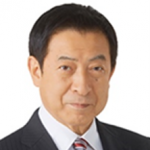
Yasuhisa Shiozaki is a former Member of the House of Representatives (1993-1995, 2000-2021 ), a former Member of the House of Councillors (1995-2000) of Japan. He served as Minister of Health, Labour and Welfare from 2014 to 2017, Chief Cabinet Secretary and Minister of State for the Abduction Issue from 2006 to 2007, Senior Vice-Minister for Foreign Affairs from 2005 to 2006 and Parliamentary Vice-Minister of Finance from 1997 to 1998. He was Chairman of the Standing Committee on Judicial Affairs of the House of Representatives, Senior Director of the Standing Committee on Budget. Prior to his transition to politics, he worked at the Bank of Japan (Central Bank) for 11 years. He is a member of the Global Leaders Group on Antimicrobial Resistance, and CEPI Global Goodwill Ambassador. He received his bachelor’s degree in American Studies from the University of Tokyo in 1975 and his master’s degree in public administration from the John F. Kennedy School of Government at Harvard University in 1982.
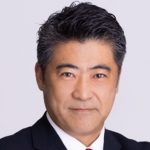
Mr. Seiji Kihara is serving his fifth term as a member of the House of Representatives and is currently the Deputy Chief Cabinet Secretary. Mr. Kihara was born in 1970 and began his career at the Ministry of Finance in 1993 after graduating from the University of Tokyo with a B.A. in law. He held numerous positions in the Ministry and also studied at the London School of Economics and Political Science, receiving his M.A. Mr. Kihara became the first Japanese official to be seconded to Her Majesty’s Treasury in the United Kingdom. He then left the Ministry in 2005 and ran successfully for a seat in the House of Representatives. In 2013-14, Mr. Kihara served as the Parliamentary Vice-Minister for Foreign Affairs. He later served as the State Minister for Foreign Affairs (2015-16), Deputy Chairperson and Chief Secretary of the LDP Policy Research Council (2017-20), Chair of the House of Representatives Committee on Cabinet (2020). He became the Deputy Chief Cabinet Secretary in October 2021.
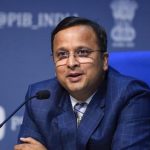
Mr. Lav Agarwal is an officer of Indian Administrative Service (IAS). He is a Mechanical Engineer from Indian Institute of Technology, New Delhi; subsequent to which he joined IAS and was allotted the state cadre of Andhra Pradesh. He is presently on deputation to Government of India as Additional Secretary to Government, Ministry of Health and Family Welfare. His responsibilities include: handling national and International operations in Digital Health & Telemedicine, National Centre for Disease Control, Climate Change & Health, Health Emergencies, Anti-Microbial Resistance and Rabies Control Program, Zoonotic diseases and Disease Surveillance for the country. He is also in charge of overall International Health and Cooperation representing the Ministry of Health. The COVID-19 outbreak has proven to be the biggest public health challenge of present time. Being Nodal officer for Health Emergencies of India, he is responsible for providing supervisory guidance and has coordinated a proactive, pre-emptive and graded response to COVID-19 outbreak, as per evolving scenario. Previously, he has worked in various capacities since the last two decades in his cadre state of Andhra Pradesh. He served in various departments which includes: Health, Election Commission, Power Distribution, Education, Youth Services and Sports, Housing and Disaster Management.
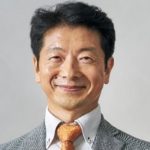
Dr. Osamu Kunii is the Chief Executive Officer of the Global Health Innovative Technology Fund. In his early career, he participated in the medical team for the hostage crisis at the official residence of the Peruvian ambassador, the emergency relief and investigation of Indonesian forest fires, Bangladesh tornado disasters and flood disasters, Afghan refugees, hospital projects in Mozambique, India, etc. Moreover, he worked on measures and surveys on infectious diseases such as Ebola fever and AIDS in Gabon and Côte d’Ivoire, community health and maternal and child health projects in Indonesia and Nicaragua, etc. Prior to hold this position, Dr. Osamu Kunii served as a Management Executive Committee member of the Global Fund to Fight AIDS, Tuberculosis and Malaria, as Head of the Strategy, Investment, and Impact Division. He worked, also, as a Global Health professional in the field of infectious diseases, maternal and child health and focused his job on the humanitarian aid sector to ensure the access to healthcare technologies for underserved populations in over 130 low- and middle-income countries.

As Executive Director of WHO’s Health Emergencies Programme, Dr. Michael Ryan leads WHO’s response to disease outbreaks, humanitarian crises and other public health emergencies. At the forefront of managing acute risks to global health for nearly 25 years, Dr. Ryan first joined WHO in 1996, within a newly established unit responding to emerging and epidemic disease threats. He has worked in conflict-affected countries across the world and has led WHO’s operational responses to high impact events such as the COVID-19 pandemic and the SARS epidemic. In addition, he served as a Senior Advisor on Polio Eradication for the Global Polio Eradication Initiative from 2013 to 2017, deploying to countries in the Middle East. Dr. Ryan is a founding member of the Global Outbreak Alert and Response Network (GOARN), which has aided the response to hundreds of disease outbreaks around the world. Dr. Ryan completed his medical training at the National University of Ireland, Galway, has a Master in Public Health from University College, Dublin, Ireland, and undertook specialist training in communicable disease control at the Health Protection Agency in London, United Kingdom and the European Programme for Intervention Epidemiology Training.
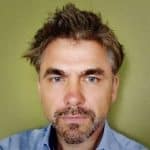
Director for Strategy, Programmes, and Partnerships with the WHO Emergencies Programme responsible for the overall strategy, program delivery, and strategic partner engagement to prepare for, prevent, detect, and respond to global health emergencies and humanitarian crises. Scott was part of the senior management team leading the Organization-wide reform of WHO’s work in emergencies and the design and development of WHO’s new Health Emergencies Programme. Scott led the international strategy, planning, and financing for the recent global Ebola and Zika outbreak events. Prior to this Scott worked for the Food and Agriculture Organization (FAO), International Labour Organization (ILO), and World Health Organization (WHO) where he played lead roles in organization-wide strategic and operational planning, budgeting, and performance assessment. Scott also led the global roll-out of enterprise management systems for financial, human capital, and supply chain management at WHO, FAO, and ILO. Scott started his career working with the World Bank in Cambodia, Bosnia, Uganda, Laos, and Thailand establishing Social Investment Funds to facilitate community-driven projects in schools, health clinics, roads, and irrigation infrastructure reconstruction in post-crisis settings.

Dr. Nkamgang Bemo has been an integral member within the Global Development division at the Bill & Melinda Gates Foundation for the past 12 years. Within the BMGF, Dr. Nkamgang Bemo pioneered and executed the Emergency Strategy to respond to all major world disasters, including the Haiti Earthquake in 2010, the Ebola Breakout in 2014, and the Nepal Earthquake in 2015. Additionally, Dr. Nkamgang Bemo designed and implemented a critical strategy for Agriculture Development in West Africa, with a focus on Nigeria. She holds over 20 years of direct experience in the field worldwide and is passionate about building local capacity within communities and national institutions, fostering innovative solutions and sustainable growth that results in lasting change. Before joining the BMGF, Dr. Nkamgang-Bemo held various roles at the International Rescue Committee, most recently serving as Senior Technical Advisor for health in the Democratic Republic of Congo and West Africa. She has experience with a wide variety of NGOs internationally with extensive experience in Emergency Relief, as well as Clinical and Public health. Regarding education, Dr. Nkamgang Bemo received her MD from the University of Cote d’Ivoire, an Epidemiology Diploma at the University of Paris, and her MPH from Madrid Autonoma University.
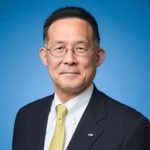
Dr. Yasuhiro Fujiwara has taken his position as Chief Executive of Pharmaceuticals and Medical Devices Agency (PMDA) since April 1, 2019. He has been elected co-chair of the International Coalition of Medicines Regulatory Authorities (ICMRA) from 1st October 2019, Dr. Yasuhiro Fujiwara was previously Director-General, Strategic Planning Bureau of the National Cancer Center, and the Deputy Director of the Hospital, National Cancer Center Hospital. He is a medical oncologist, specializing in breast cancer. Before joining National Cancer Center Hospital, he was a deputy director of the Evaluation Division II of the Pharmaceuticals and Medical Devices Evaluation Center of the National Institute of Health Sciences (PMDEC, which later merged with other organizations to form PMDA) of the Ministry of Health and Welfare and Labor between 1997 –2002, making his current position as Chief Executive his second appointment. Between Jan 2011 to Feb 2013, he was a Deputy Secretary-General of the Office of Medical Innovation, Cabinet Secretariat of Japan, and led health policy issues regarding life science. Dr. Fujiwara has authored or co-authored over 280 original articles in peer-reviewed journals including Nature Reviews Drug Discovery, Lancet Oncology, Journal of Clinical Oncology, Annals of Oncology. He is an active member of the American Society of Clinical Oncology (between 2003 and 2006, he was the International Affairs Committee’s member), and a Board Member of the Japanese Society of Medical Oncology (JSMO) (He was the President of the 2019 JSMO annual meeting, held in Kyoto). He is on the Editorial Board of Cancer Chemotherapy and Pharmacology; Cancer Science; Asian-Pacific Journal of Clinical Oncology; Japanese Journal of Clinical Oncology.
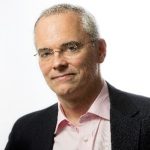
Richard J. Hatchett, MD, is Chief Executive Officer of CEPI. Dr. Hatchett’s and CEPI’s plan is for the world to neutralize pandemic threats with prescient investment in scientific R&D. Before taking on the CEPI leadership just after its launch in 2017, Dr. Hatchett was Acting Director of the U.S. Biomedical Advanced Research and Development Authority (BARDA). He has also served under two U.S. Presidents – George W. Bush and Barack Obama – as Director of Medical Preparedness Policy on the Homeland and National Security Councils. Dr. Hatchett has a medical degree from Vanderbilt and completed clinical training in internal medicine and medical oncology at Cornell and Duke.
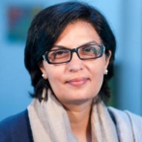
Dr. Sania Nishtar is a member of the Senate of Pakistan. From November 2018 to May 2022, she served as Special Assistant of the Prime Minister of Pakistan and Federal Minister, where she held the Cabinet portfolio on poverty alleviation. In this role she founded and was responsible for implementing Ehsaas, the largest social protection program in the country’s history, which reached out to 15 million households and has been internationally acclaimed. During this time she was also the Chairperson of the Benazir Income Support Program. Dr. Nishtar is former Chair of several multilateral initiatives including the WHO’s High-Level Commission on Non-Communicable Diseases, The World Economic Forum’s Global Agenda Council on the Future of Healthcare, U.S National Academy of Sciences Global Study on the Quality of Healthcare in LMICs, UN International Institute for Global Health’s Advisory Committee, UN Secretary General’s Independent Accountability Panel for Women’s and Children’s Health and WHO’s Commission on Ending Childhood Obesity. In 2017, she was Pakistan’s nominee for Director-General of the World Health Organization and was included in the final shortlist of three. She is the founder of the NGO Heartfile, has received many international awards for her work and is widely published. Sania Nishtar graduated from Khyber Medical College with a Bachelor of Medicine, Bachelor of Surgery in 1986 and was Best Graduate of the Year. She is a Fellow of the Royal College of Physicians and has a Ph.D from King’s College London. King’s College London honored her with a Doctorate in Science, Honoris Causa in 2019. In 2020 she was listed amongst BBC’s 100 most influential women, globally.
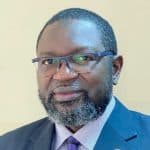
Dr. Ahmed Ogwell Ouma is the founding Deputy Director, and had been the Acting Director for 10 months until this March and currently serves as Deputy Director General. In these roles, he has led the strategic work and oversight of Africa CDC. He works closely with African Union Member States and partners to deliver on the mandate of the Africa CDC of preventing and controlling diseases in Africa. Dr. Ahmed has led the operations of Africa CDC during the COVID-19 pandemic, coordinating the planning, acquisition, and delivery of life-saving health products to African countries including test kits, personal protective materials, therapeutics, and vaccines. Formerly, he worked with the WHO at both the HQs and Regional Office for Africa, in combating NCDs & tobacco control. Prior to that, Dr. Ahmed worked at the country level in the Ministry of Health, Kenya, as Director for NCDs and then as Head of the Office for International Health Relations. He has been at the forefront of advocacy and action to reform the health system in Africa including the need to establish an efficient & effective response mechanism for disease threats and health emergencies. He has over 25 years of experience in public health and is an alumnus of the University of Nairobi in Kenya and the University of Bergen in Norway.
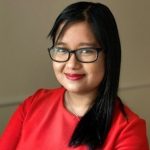
Fifa A Rahman MHL (Health Law), PhD has over 14 years’ experience working in global health, focused on strategic engagement and the amplification of Global South expertise in global health initiatives across multiple disease areas. As Principal Consultant at Matahari Global Solutions, she has led projects to document barriers to COVID-19 services uptake in 14 countries, and is presently working on a comparative analysis on the pandemic instrument and on the international health regulations amendments. She was CSO representative on the ACT-Accelerator, and presently is CSO representative on the WHO medical countermeasures prototype working group. She is also part of the Technical Working Group for the WHO Framework for Research, Development and Innovation for Health Security Preparedness. As Special Advisor at Health Poverty Action, she leads a community mobilization project on self-testing for COVID-19 in Ethiopia, Malawi, and Uganda, working with local organizations. Her analysis and insights have been included in pieces in the New York Times, The Guardian, Devex, The Hindu Business Times, among others. Work experience has taken her to early infant diagnosis facilities in rural Mozambique, to villages receiving HIV self-testing kits in Mazowe, Zimbabwe, and to the World Health Summit in Berlin. She is based in Leeds, United Kingdom, and speaks English (fluent), Malay (proficiency), and Spanish (intermediate).
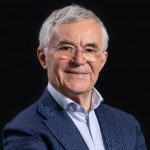
Rino Rappuoli is Scientific Director of the Biotecnopolo di Siena Foundation and head of MAD Lab Toscana Life Sciences, Italy. He is also Honorary Professor of Vaccinology at Imperial College, London, and Senior Professor of Molecular Biology at the University of Siena. Prior positions held: Head R&D and Chief Scientist at GSK Vaccines, head of Vaccine R&D at Novartis, CSO at Chiron Corporation, head R&D at Sclavo. He earned his PhD in Biological Sciences at the University of Siena, Italy, and was visiting scientist at Rockefeller University and Harvard Medical School. He is elected member of US National Academy of Sciences (NAS), the American Academy of Arts & Sciences (AAAS), the European Molecular Biology Organization (EMBO), the Royal Society of London, the Accademia Nazionale dei Lincei, and the American Institute for Medical and Biological Engineering (AIMBE). Awards received: Gold Medal by the Italian President, Albert B Sabin Gold Medal, Canada Gairdner International Award, European Inventor Award for Lifetime Achievement, Paul Ehrlich and Ludwig Darmstaedter Prize and the Robert Koch Award. He is President of the International Union of Microbiological Societies. He was nominated third most influential person worldwide in the field of vaccines (Terrapin). He has published 791 works in peer-reviewed journals and an H-index of 157. He introduced novel scientific concepts: genetic detoxification; cellular microbiology; reverse vaccinology; pangenome. Developed licensed vaccines: acellular pertussis containing a non-toxic mutant of pertussis toxin; first conjugate vaccine against meningococcus C; MF59-adjuvanted seasonal and pandemic influenza MF59 was the first vaccine adjuvant after aluminum salts; meningococcus B; CRM 197 used as carrier in many conjugate vaccines. Founder of the GSK Vaccines Institute for Global Health (GVGH). Dr. Rappuoli is among the world scientific leaders dedicated to the sustainability of global health.
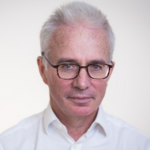
Peter Sands assumed his current position in March 2018 after a distinguished career in banking, most notably as CEO of Standard Chartered PLC (2006-15). Under his direction, Standard Chartered focused its corporate responsibility initiatives on health issues, including avoidable blindness, AIDS and malaria. During this time, he served on the board of the Global Business Coalition on AIDS, Tuberculosis and Malaria and was lead non-executive director on the board of the UK Department of Health. After Standard Chartered, he was a research fellow at the Harvard Global Health Institute and the Mossavar-Rahmani Center for Business and Government at Harvard Kennedy School working on projects at the interface of global health and international finance, published in the New England Journal of Medicine and The Lancet. In 2015-16, he chaired the U.S. National Academy of Medicine’s Commission on a Global Health Risk Framework for the Future, which published “The Neglected Dimension of Global Security: a Framework to Counter Infectious Disease Threats” in 2016. In 2016-17, he chaired the International Working Group on Financing Pandemic Preparedness at the World Bank. Sands is also a member of the U.S. National Academy of Science’s Forum on Microbial Threats and has served on numerous boards and commissions, including the UK’s National Institute for Economic and Social Research, International Advisory Board of the Monetary Authority of Singapore, Institute of International Finance, and World Economic Forum. Sands graduated from Brasenose College, Oxford University (and from Harvard University with a Master’s in Public Administration.

Dr. Monique Vledder is the Practice Manager for the Global Health, Nutrition and Population Unit at the World Bank leading the team responsible for technical assistance, analytical work, partnerships and learning on key global health issues including service delivery, climate and health and pandemic preparedness among others. Until recently she was the Head of the Secretariat for the Global Financing Facility for Women, Children and Adolescents (GFF), a multi-stakeholder global partnership housed at the World Bank ensuring all women, children and adolescents can survive and thrive. Monique led the design of the GFF business model as well as the establishment of the GFF Secretariat and the successful expansion to 38 partner countries. The GFF provides catalytic financing and technical assistance to low and lower-middle income partner countries, supporting the development and implementation of country-led national health plans to scale up access to affordable, quality care. Monique is passionate about innovative and smart investments to improve women, children and adolescent health and her expertise in reproductive health, health systems strengthening, and financing and service delivery has been built over more than 25 years of global health experience working in various regions including Africa, Latin America, and East Asia. She led World Bank financed country programs on health systems reform and primary health care in Latin America and East and Southern Africa. She also managed U.K. Department for International Development programs on women’s health, health financing and inequality in Brazil and led a portfolio of maternal and child health and nutrition programs for World Vision International in Indonesia. Prior to the establishment of the GFF in 2015, Monique managed the Health Results Innovation Fund, an initiative that focused on innovations in health financing and frontline service delivery. Monique holds an MD from the University of Amsterdam, an MPH in International Health from Harvard University, a diploma in health economics from the University of York and a certificate in Women and Leadership from the Said Business School in London. She is a proud mother of two.

